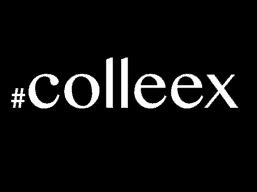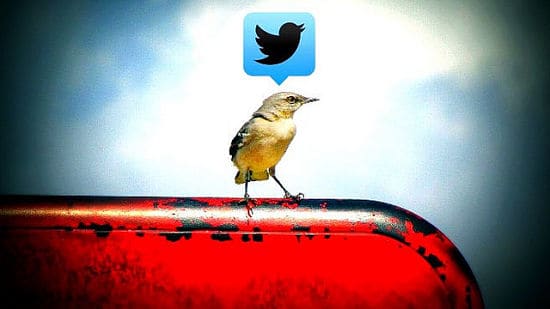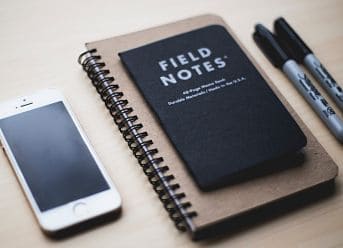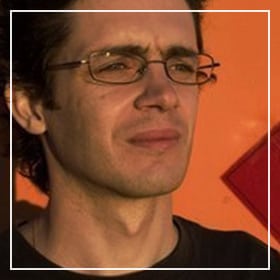Ethnographic experimentation refers to an ethnographic modality where anthropologists venture into the collaborative production of venues for knowledge creation that turn the field into a site for the construction of joint anthropological problematizations.
‘You can’t be a mere observer here’, this was the imperative Tomás encountered when in late 2012 he proposed undertaking participant observation in a nascent Barcelona-based project for the open design of technical aids, called En torno a la silla (ETS). The group was open to his incorporation, yet they demanded a form of participation other than observation. This condition was aligned with the independent-living movement’s motto and philosophy which permeated the group: ‘nothing about us without us’, a slogan that would shape Tomás’ subsequent ethnographic project. A similar situation was faced by Adolfo in a long ethnographic project that expanded for years among urban guerrillas in Madrid. The presence in our respective field sites may not be described as that of a participant making observations, then what? Let’s call it a collaborators engaging in forms of experimentation.
 Ethnographic experimentation is the topic we explore in the six posts of this thematic thread whose publication evolved from the first workshop held by the new EASA network #Colleex (‘Ethnographic Experimentation. Fieldwork Devices and Companions’, 13th–15th July 2017, Jardim Botânico Tropical, Lisbon’). We would like to accompany the debate we sought to open up in Lisbon with this publication in Allegra’s digital platform, an association that has supported our venture since its very beginnings. If interested in the Collaboratory for Ethnographic Experimentation – Colleex, you may read our manifesto here.
Ethnographic experimentation is the topic we explore in the six posts of this thematic thread whose publication evolved from the first workshop held by the new EASA network #Colleex (‘Ethnographic Experimentation. Fieldwork Devices and Companions’, 13th–15th July 2017, Jardim Botânico Tropical, Lisbon’). We would like to accompany the debate we sought to open up in Lisbon with this publication in Allegra’s digital platform, an association that has supported our venture since its very beginnings. If interested in the Collaboratory for Ethnographic Experimentation – Colleex, you may read our manifesto here.
Our proposal is to set the stage for a discussion on the form of fieldwork that we would like to describe and conceptualize as ‘ethnographic experimentation.’
With this figure we seek to explore the appropriate descriptive language to account for the kind of engagements and epistemic practices of our (and other’s) fieldworks. This discussion resonates with recent reflections contending the need to readdress fieldwork and reformulate its practice (Faubion and Marcus, 2009; Fabian, 2014). We echo debates on the place of ethnography in the production of anthropological knowledge (Ingold, 2008) and the transformation of the norm and form of fieldwork in a series of projects that have injected an experimental drive (Rabinow et al. 2008).
The reflections of Douglas Holmes and George Marcus (2008) are particularly relevant for the argument we aim to bring for discussion: their ethnographic projects led them to argue that if anthropology was to enter into domains populated by subjects that shared anthropologists ethnographic-like practices, or in their idiom, ‘para-ethnographic’ practices, it was essential to ‘re-function ethnography’ (Holmes and Marcus, 2005). In these ethnographic sites, collaboration would be the cornerstone from which to undertake fieldwork. Their argument has been posed for those anthropologists working side by side with scientists, activists, public servants or artists: Sites leading anthropologists to engage with different forms of expertise and problematize their conventional practices of knowledge production.
The observational stance is then replaced with an experimental approach deeply rooted in these para-sitical collaborations.
One of the broadest explorations of experimentation in ethnography in recent years has been undertaken by Paul Rabinow and his collaborators (Rabinow and Stavrianakis, 2013), as part of his wider reflection on what he refers to as the anthropology of the contemporary. His most recent project on synthetic biology has been described as an experiment unfolding a twofold collaboration: between anthropology and biology; and between Rabinow and his co-researchers (PhD students and postdoctoral researchers). This project is driven by the desire to redesign, ‘to experiment with the invention and refinement of practices of venue construction and modes of presentation, as well as concept formation and clustering’ (Rabinow, 2011: 114).

The increasing incorporation of digital platforms in anthropology—at times as spaces for collaboration, at others as repositories for exploring the formats of empirical data—have often been accompanied by appeals for experimentation. Kim and Michael Fortun’s Asthma Files project is paradigmatic in this sense: a set of digital platforms, private and public databases with interviews and various ethnographic findings, intended to record the different and fragmentary sources of knowledge and expertise available on this multiple disease. In the researchers’ own description, theirs are ‘digital tools aimed to animate the comparative perspective of anthropology’ (Fortun et al., 2014: 633). Digital platforms in the form of archives and co-ordinating tools have also been the locus for experiments with ethnographic writing genres (Fabian, 2008).
Digital platforms certainly serve a different purpose than that of publicizing projects or the presentation of results; they are essential pieces of equipment in the production of records, concepts and interpretations during fieldwork. Nevertheless, the key point is their status as infrastructures for inquiry, an integral part of ethnographic forms of engagement. This is fundamental for arguments advocating experimentation in ethnography: it allows anthropologists to put in practice forms of inquiry that make the forging of new anthropological problematizations possible.
Although appeals for experimentation are sometimes vague and attribute diverse meanings to the process, the use of this figure is not a mere metaphorical flourish. Descriptive accounts of experimentation bring to life new ethnographic imaginations that either transform field informants into epistemic partners (Holmes and Marcus, 2005), remediate the form of ethnography in the company of others (Rabinow, 2011), or even trade the traditional comparative project of anthropology for one of collaboration (Riles, 2015).
The experimental becomes a distinctive articulation of the empirical work of anthropologists shaping their relationships in the field collaboratively.
We take this invocation of the figure of experimentation in fieldwork seriously because we believe it constitutes attempts to describe distinctive forms of knowledge production.
Despite the innovative formulation of experimentation in various contemporary projects, the trope of participant observation often remains the cornerstone for fieldwork (and figure for its descriptions). Experimentation, hence, is conceived as a kind of deviation from participant observation, where the experiment sets the stage for the expansion of limits and possibilities (Rabinow and Stavrianakis, 2013). While these considerations provide fruitful insights to experimental practices in fieldwork, we contend that the ethnographic experiment should not be seen merely as a deviation but as a distinctive ethnographic modality for the production of anthropological knowledge. Put differently,
the specific object of the ethnographic experimentation is not participant observation but the social worlds in which anthropologists are involved.
We do not intend to set this ethnographic modality against participant observation. On the contrary, the ethnographic experimentation is usually (and this has been our experience) intimately entangled with observation: at times they alternate, at others experimentation replaces participant observation, and very often they coexist in intricate alliances. As the history of science has demonstrated, the epistemic practices of observation and experimentation have historically been intimately related, it was only at the end of the nineteenth century that they were interpreted as two detached and differentiated epistemic categories. Only since the second half of the nineteenth century have they been interpreted as two detached and differentiated epistemic categories (Daston and Lunbeck, 2011).
This historical process characterized the experiment as an active activity demanding ideas and ingenuity, while reducing observation to a passive instance restricted to the mere recollection of data (Daston, 2011). Each practice was then located in a specific space: the laboratory for experimentation, the field for observation. Historians of science have demonstrated the sheer diversity of ‘styles of experimentation’ (Klein, 2003) that have characterized this form of knowledge production and, importantly for our argument, have disputed the confining of experimentation to the laboratory, by revealing the existence of many forms that took place in the field (Schaffer, 1994). Robert Kohler (2002), for instance, has described biologists practicing experiments in the wild during the last decades of the nineteenth century. The laboratory may be the paradigmatic spatial organization of experimentation, but it is not the only one. This literature is a source of inspiration for our take on ethnographic experimentation.

A historical detour into the origins of anthropology demonstrates that this intricate entanglement between experimentation and observation can be witnessed at the very moment the discipline’s modern methodological canon was articulated. The historical record provides authoritative evidence of how early anthropological expeditions modeled the discipline’s fieldwork methods after the field practices of biology, zoology and oceanography (Stocking, 1983; Kuklick, 1997). Less established is the claim that these experiences were influenced by forms of self-experimentation by medical and psychological practitioners (Schaffer, 1994). In their historical account of the 1908 Percy Sladen Trust Expedition to the Solomon Islands by A. M. Hocart and W. H. R. Rivers, Edvard Hviding and Cato Berg (2013) describe details of how forms of prolonged fieldwork that laid the foundations of the contemporary canon of participant observation were the result of what they described as an exercise of ethnographic experimentation with the Solomon villagers, characterized as an “encounter […] in which initiative was simultaneously ethnographic and indigenous” (Hviding and Berg, 2013: 4).
Our intention in highlighting this is neither to bestow contemporary projects with a halo of radical methodological novelty nor to posit an absolute rupture with the conventions of ethnography. On the contrary, we suggest that the experimental nature of many ethnographic projects connects with and continues a prolonged history of creative exploration within the discipline. In particular, we would like to expound on the idea that this experimentation draws from the creative exploration of writing genres inaugurated in anthropology during the 1980s in what became known as ‘the reflexive turn’ (Marcus and Fischer, 1986; Clifford and Marcus, 1986), a time when many explorations in textual and audiovisual genres brought to the fore a crisis of representation. As George E. Marcus and Michael J. Fischer phrased it at the time: ‘What is happening seems to us to be a pregnant moment in which every individual project of ethnographic research and writing is potentially an experiment’ (1986: ix). Yet, while this epistemic reorientation in the discipline focused on the space of representation (particularly the written form) as the locus for creative reinvention of the ethnographic norm and form, we are now witnessing a shift that identifies the empirical site of fieldwork as the locus for devising modalities of ethnographic experimentation (Marcus, 2014).
We are even tempted to say that our evocation of experimentation does not signal a new form of engagement in the field but a common practice, an ethnographic modality that despite its presence has rarely been noted and recounted in our tales of the field. This is why it is so important to explore the descriptive vocabularies that can account for these ethnographic modalities. Ethnographic exploration of the specific sites we have portrayed is certainly not new: the anthropology of organizations, for instance, has a long tradition of studying these kinds of corporative and institutional environments populated by technicians and experts. Therefore, the reflections on epistemic practices and forms of engagement provoked when studying these sites are not simply a result of their nature. We believe they bear witness to an emerging sensibility that takes shape in these encounters and seeks to device other forms of field engagement.
Invoking the trope of ethnographic experimentation we aim at describing how anthropologists creatively venture into the production of venues of knowledge creation through processes of material and social interventions that turn the field into a site for epistemic collaboration: a site for the construction of joint anthropological problematizations.
In these situations, the traditional tropes of the fieldwork encounter (i.e. immersion and distance) give way to a narrative of intervention, where the principle of collaboration in the production of knowledge substitutes or intermingles with the traditional trope of participant observation. Building on this, we propose the concept of ethnographic experimentation to describe and conceptualize what we consider is a distinctive ethnographic modality, an effort to produce new tales of the field.
References
Clifford, J., & Marcus, G. E. (Eds.). (1986). Writing Culture. The Poetics and Politics of Ethnography. Berkeley: California University Press.
Daston, L. (2011). The Empire of Observation: 1600—1800. In L. Daston & E. Lunbeck (Eds.), Histories of Scientific Observation (pp. 81-113). Chicago: Chicago University Press.
Daston, L., & Lunbeck, E. (Eds.). (2010). Histories of Scientific Observation. Chicago: Chicago University Press.
Fabian, J. (2008). Ethnography as Commentary: Writing from the Virtual Archive. Durham, NC: Duke University Press.
Fabian, J. (2014). Time and The Other: How Anthropology Makes its Object. New York: Columbia University Press.
Faubion, J. D., & Marcus, G. E. (Eds.). (2009). Fieldwork Is Not What It Used to Be: Learning Anthropology’s Method in a Time of Transition. Ithaca, NY: Cornell University Press.
Fortun, K. et al. (2014). Experimental Ethnography Online: The asthma files. Cultural Studies, 28(4), 632—642.
Holmes, D. R., & Marcus, G. E. (2005). Cultures of Expertise and the Management of Globalization: Toward the Re-Functioning of Ethnography. In A. Ong & S. J. Collier (Eds.), Global Assemblages: Technology, Politics, and Ethics as Anthropological Problems (pp. 235—252). Oxford: Blackwell.
Holmes, D. R., & Marcus, G. E. (2008). Collaboration Today and the Re-Imagination of the Classic Scene of Fieldwork Encounter. Collaborative Anthropologies, 1(1), 81—101.
Hviding, E., & Berg, C. (Eds.). (2014). The Ethnographic Experiment: A. M. Hocart and W. H. R. Rivers in Island Melanesia, 1908. Oxford: Berghahn.
Ingold, T. (2008). Anthropology is Not Ethnography. Proceedings of the British Academy, 154, 69—92.
Klein, U. (2003). Styles of Experimentation. In M.C. Galavotti (Ed.), Observation and Experiment in the Natural and Social Sciences (pp. 159-185). Dordrecht: Kluwer.
Kohler, R. (2002). Landscapes and Labscapes: Exploring the Lab-Field Border in Biology. Chicago: Chicago University Press.
Kuklick, H. (1997). After Ishmael: The fieldwork tradition and its future. In A. Gupta and J. Ferguson(Eds.), Anthropological Locations: Boundaries and Grounds of a Field Science (pp. 47-65). Berkeley: University of California Press.
Marcus, G. (2014). Prototyping and Contemporary Anthropological Experiments With Ethnographic Method. Journal of Cultural Economy, 7(4), 399—410.
Marcus, G. E., & Fischer, M. J. (1986). Anthropology as Cultural Critique: An Experimental Moment in the Human Sciences. Chicago: University Of Chicago Press.
Rabinow, P. (2011). The Accompaniment: Assembling the Contemporary. Chicago: University Of Chicago Press.
Rabinow, P., Marcus, G. E., Faubion, J. D., & Rees, T. (2008). Designs for an Anthropology of the Contemporary. Durham: Duke University Press.
Rabinow, P., & Stavrianakis, A. (2013). Demands of the day: On the logic of anthropological inquiry. Chicago: University of Chicago Press.
Riles, A. (2015). From Comparison to Collaboration: Experiments with a New Scholarly and Political Form. Law and Contemporary Problems, 78(1-2), 147—183.
Schaffer, S. (1994). From Physics to Anthropology – & Back Again. Cambridge: Prickly Pear Press.
Stocking, G. (1983). The Ethnographer’s Magic: Fieldwork in British Anthropology from Tylor to Malinowski. In G. Stocking (Ed.), Observers Observed. Essays on Ethnographic Fieldwork (pp. 70—120). Madison: University of Winsconsin Press.
Featured image by Ross Websdale (flickr, CC BY-NC-SA 2.0)






